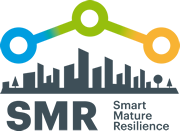Our Tier 2 Cities
CITY OF RIGA
Riga in Latvia
Latvia’s coastal capital city is its cultural, educational and economic heart. It consistently accounts for over 50% of the country’s GDP and is home to around a third of the country’s population. It is an important centre of classical and popular art, architecture and music in the region and is listed as a UNESCO World Heritage city. Riga is also noted as an ICT trailblazer and was recognised as the capital city for free wireless internet in Europe in 2014. It is a multicultural and multilingual city with a major Russian population and significant populations from Eastern Europe.
Riga in Europe
Riga is an international transport hub, with international transport routes, railways, the largest sea port and the largest airport in the Baltic region. Riga is a member of EUROCITIES and is an active city in Europe, having hosted the European Capital of Culture in 2014 and the seat of the Latvian Presidency of the EU in 2015. It is among the most ambitious Eastern European cities in the field of resilience and was the first EU capital to sign the Covenant of Mayors. Since 2008, Riga hosts the annual month-long Energy Days event, which is of regional importance for knowledge transfer and collaboration between the Covenant signatories. Riga is further a signatory of Green Digital Charter of the European Commission.
RIGA AND RESILIENCE

Planning Riga
Since Latvia’s independence in 1991, Riga has been addressing inherited challenges such as a diminishing industry, inadequately-maintained public buildings and infrastructure including inefficient district heating and excessive use of private transport in the city. A new City Sustainable Development Strategy looks towards 2030, a Riga City Development Programme has been developed for 2014–2020 as well as the final stages of the Riga Spatial Plan 2006-2018. The newly adopted planning documents focus on sustainable development where 19 mid-term actions each have a specific impact on each of Riga City long-term strategic goals.
In 2014, Riga City Council published and approved the “Riga Smart City - Sustainable Energy Action Plan for 2014 – 2020”. This document builds and expands on the Sustainable Energy Action Plan (SEAP), which has been in place since 2010.
Resilience Goals
Riga plans to develop its resilience to support its local economy in the face of diminishing industry. The city wishes to transition from car use to widespread sustainable forms of public transport and mobility.
Resilience Engagement
Active member and Board member of Energy Cities, the European association of local authorities in energy transition
Member of ICLEI - Local Governments for Sustainability
Signatory of the Covenant of Mayors
Organiser of Riga Energy Days
Signatory of the Green Digital Charter of the European Commission
City factsheet
Population
Area
Geography
Commerce
Resources
Primary heating system
Approx. 650 000
304 km2
Coastline
Latvia’s largest port
Coal, petroleum products
District heating (74%)

This project has received funding from the European Union’s Horizon 2020 research and innovation programme under grant agreement no. 653569.
